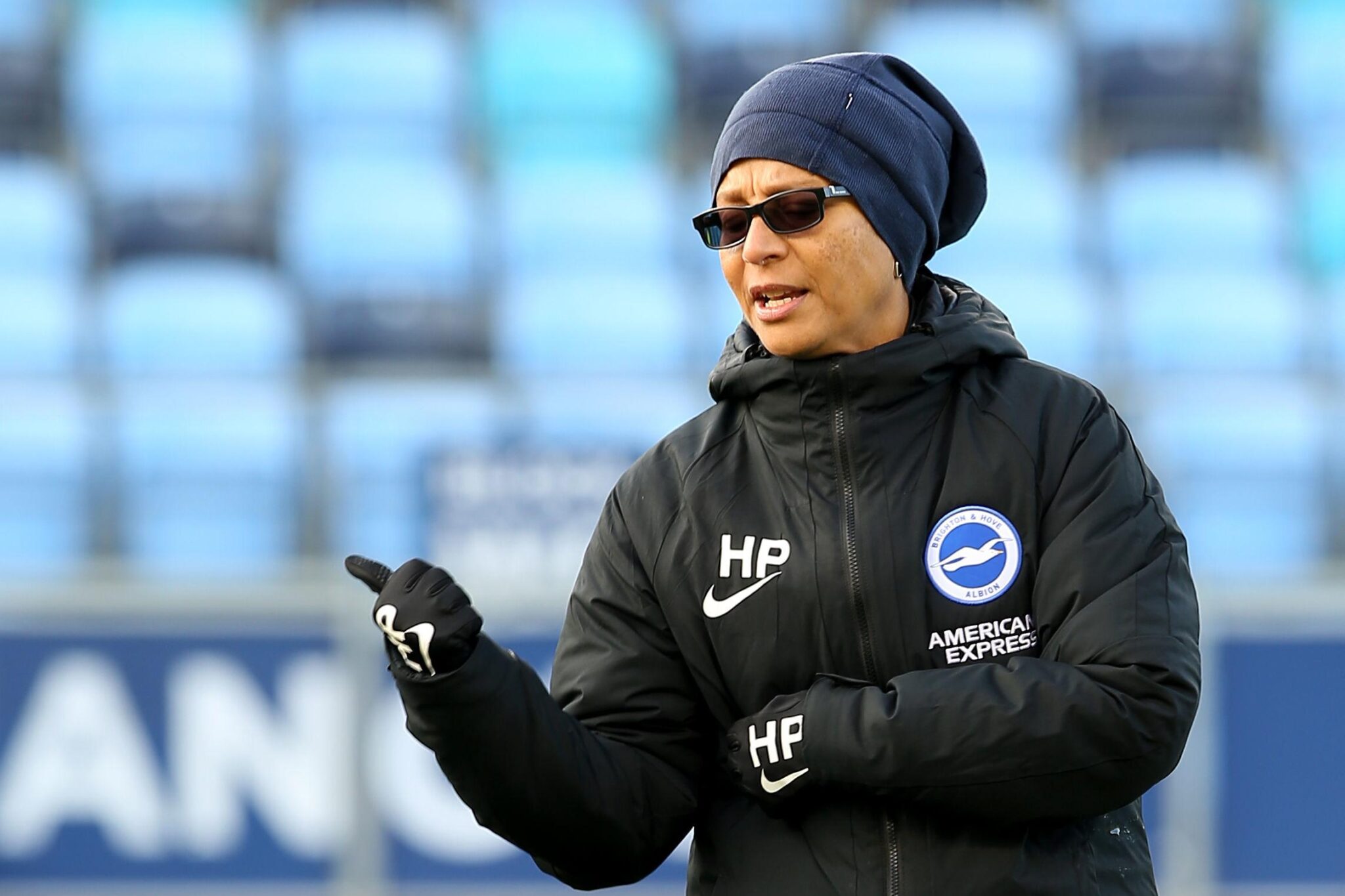© The Fan Experience Company 2020

Trebling Women's Super League crowds realistic says Brighton boss Hope Powell
Brighton manager Hope Powell says ambitions to treble Women’s Super League crowds in three years is a “realistic” target that the game should “aim towards”.
Despite attendances dropping from pre-pandemic levels, a new broadcast deal has seen viewing figures grow hugely.
The Football Association now hopes to see average crowds increase to 6,000 by 2024.
Former England boss Powell says the league is “definitely on the rise”.
After two seasons interrupted by Covid-19, the average attendance across the league has dropped from “around 3,000” in 2020-21 to 2,282 this season.
Asked whether she thought the FA’s ambitions were obtainable, Powell said: “Why can’t it be achieved? The rise of the women’s game has proved more and more popular – attendances are there.
“Is it realistic? Absolutely. Is it going to take time? Yes, I think so. If you look back five years and where we’ve come it’s possible.
"Women's football and women's sport is definitely on the rise. More people are talking about it, commercial deals are being done that weren't before. I think it's absolutely the right time to be aiming towards something like this three-year plan."
Hope Powell, Brighton & Hove Albion
In the 2018-19 season average attendances in the WSL were 833, with Brighton drawing a then WSL-record crowd of 5,265 against Arsenal at the end of the campaign.
On the opening weekend of the following season a combined total of nearly 63,000 people attended fixtures.
A crowd of 31,213 watched as Manchester City beat Manchester United at Etihad Stadium, while 24,564 watched Chelsea beat Tottenham at Stamford Bridge. The WSL attendance record set at City was broken later that season as 38,262 watched Arsenal win the north London derby at the Tottenham Hotspur Stadium.
Like Powell, Chelsea boss Emma Hayes feels the FA’s aims for attendances “is doable”, but adds that “Covid has got in the way” after previous improvements.
“It might just be temporary that there is a decrease,” she said. “As long as we are front and centre that visibility I think, over the longer term, will pay dividends.
“We have to respect that some people are not quite ready to go out to big events and we have to be patient with that. It won’t be permanent.
“We might not see that big turnaround this season, but I think as consumer confidence grows and the public feel that they want to put themselves in those situations in more numbers, I’m sure it will grow.”
‘Success of England team a big boost’
Kelly Simmons, the FA’s director of the women’s professional game, did not provide specific plans on how to increase average crowds, but said “it’s about us collaboratively working together” with clubs “to try and drive an average” of 6,000.
The success of the England team as hosts of the European Championship in 2022 is also seen as critical, with crowd numbers previously “spiking” when the Lionesses reached the semi-finals of the 2019 World Cup.
“We’re very excited about the Euros and we know about those big spikes in attendance pre-Covid, and the wave we were on off the back of the World Cup, so there’s no doubt a successful England team is a big boost,” Simmons said.
“The difference now is with the BBC and Sky [broadcast] partnership, and the work that the clubs and everybody has done, we would still kick off strongly and be very much in the national consciousness regardless of the tournament.”
‘Fans will drive women’s football forward’
Leicester City manager Jonathan Morgan, whose side played in front of a club-record home crowd of 4,473 at the King Power Stadium when they hosted Manchester United in September, said the FA and clubs should “keep pushing” for bigger crowds and higher expectations in the women’s game.
“This is the type of aim we should have for the women’s game and we shouldn’t cap it either,” he said.
Arsenal manager Jonas Eidevall, who praised the 500 away fans who travelled to Denmark for a Women’s Champions League game on Wednesday as “amazing”, said the WSL “product deserved a far wider audience”.
“Our ambition should be very bold and brave about how many people we try to attract to our games,” he said.
“Audiences and fans will drive women’s football forward.”
Original article published 12.11.21 on the BBC Sport website.
To view click here
